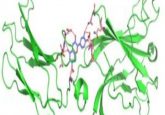MMR vaccine could protect against complications of COVID-19

Scientists propose that live attenuated vaccines, such as the MMR vaccine, could protect against the severe symptoms of COVID-19.
As the race for a COVID-19 vaccine continues, researchers from Louisiana State University and Tulane University (both LA, USA) have proposed that a common childhood vaccine could reduce the risk of developing severe COVID-19 symptoms. Though not a vaccine for the disease itself, vaccines such as MMR have been shown to act as an immune preventive measure against inflammatory symptoms and protect against lethal sepsis.
If you would like to keep up to date with our content on coronavirus, you can sign up for our site here, where you can subscribe to our newsletters for free!
The MMR vaccine – which provides protection against measles, mumps and rubella – is a form of live attenuated vaccine. These vaccines contain a live form of the original disease-causing pathogen that has been weakened. When injected, they stimulate the necessary immune response without causing the disease itself.
Evidence has suggested that live attenuated vaccines are able to provide protection against unrelated infections by activating nonspecific innate immune cells to trigger an improved host response against subsequent infection. In their recent commentary, the authors propose that this ability may extend to protection against the most severe side-effects of COVID-19.
The researchers demonstrated the ability using a live attenuated fungal strain that generated a trained innate protection against sepsis that was triggered by disease-causing pathogens in mice. They propose that the protection is produced by long-lived myeloid-derived suppressor cells, which have been shown in previous experiments to inhibit septic inflammation and mortality.
Use of unproven COVID-19 therapeutics, such as hydroxychloroquine, could increase the risk of developing cardiac complications in African-American populations.
“The use of childhood live attenuated vaccines such as MMR given to adults to induce bystander cells that can dampen or reduce severe complications associated with COVID-19 infection is a low risk – high reward preventive measure during a critical period of the pandemic,” commented study author Paul Fidel (Louisiana State University).
This notion is not entirely new and at least six other clinical trials are currently underway in various different countries to test whether a beneficial effect against COVID-19 can be elicited by vaccination with Mycobacterium bovis BCG, a live attenuated vaccine for tuberculosis. However, these studies are investigating the efficacy of such vaccines against COVID-19 infection, Fidel and co-author Mairi Noverr (Tulane University) are unique in their focus on the attenuation of the severest COVID-19 symptoms.
Though the protection against measles, mumps and rubella is life-long, the nonspecific protection is not so the authors note it may be worth getting an MMR vaccine booster as an adult to protect against severe symptoms of COVID-19.
“If we’re correct, an MMR-vaccinated person may suffer less if infected with COVID-19. If we’re wrong, the person has better immunity to measles, mumps, and rubella. A sort of no harm no foul action,” Fidel concluded.
 Genetic variant puts African-American populations at greater risk of hydroxychloroquine cardiac complications
Genetic variant puts African-American populations at greater risk of hydroxychloroquine cardiac complications




